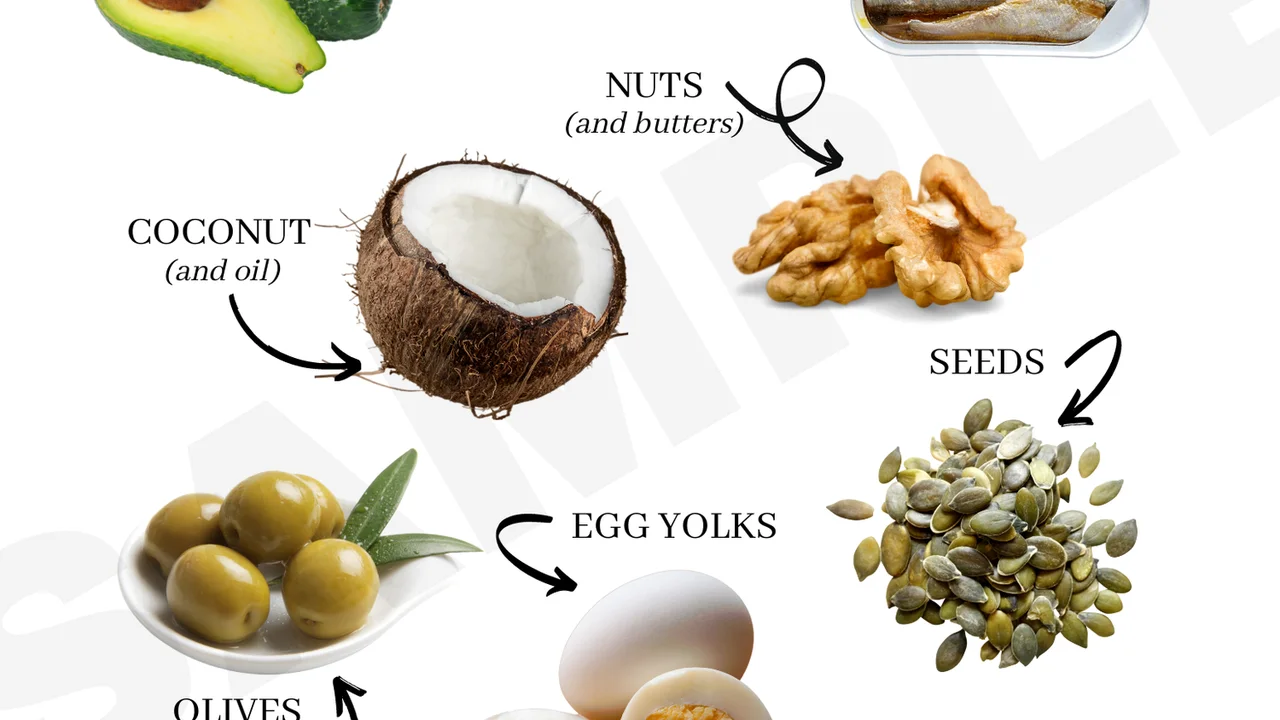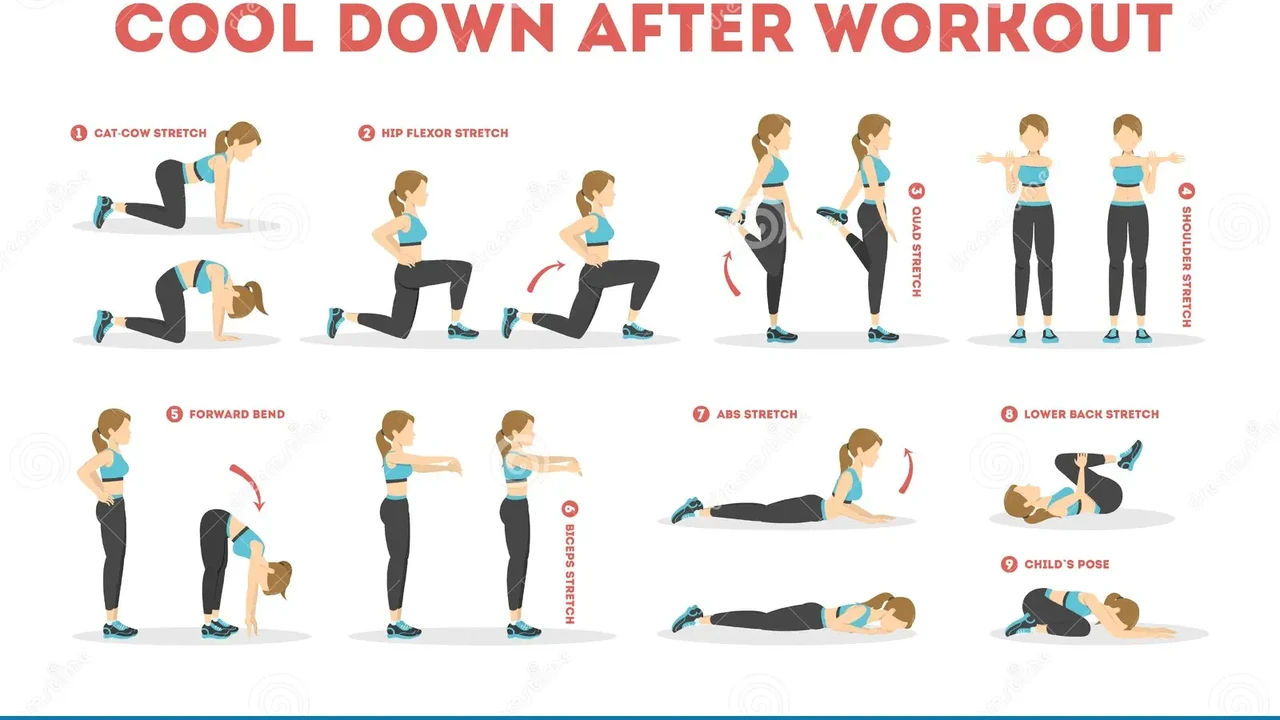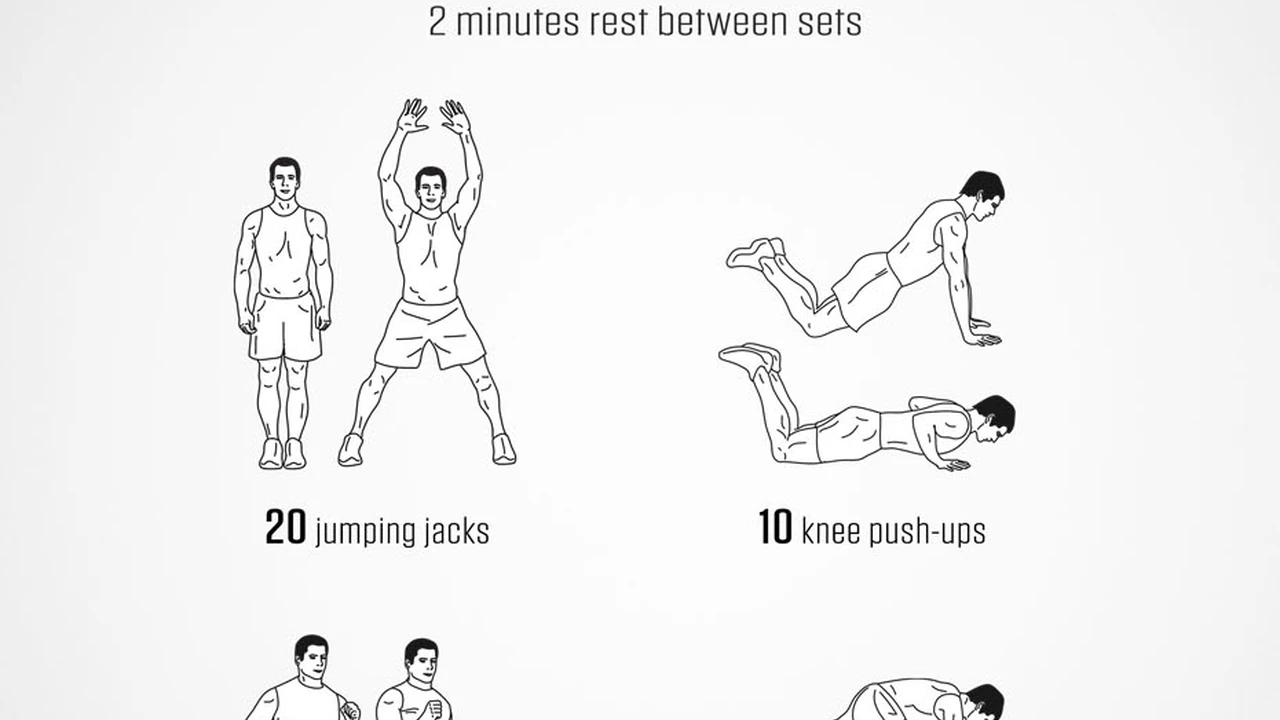Healthy Fats for Street Workout_ Essential Nutrients

Understanding the Nutritional Needs of Street Workout Athletes
Street workout, also known as calisthenics, is a demanding physical discipline. Unlike traditional weightlifting, it relies heavily on bodyweight exercises performed in dynamic and often explosive movements. This unique approach necessitates a specialized nutritional strategy to fuel performance, support recovery, and optimize overall health. Neglecting proper nutrition can lead to fatigue, injury, and hindered progress.
Think of your body as a high-performance engine. It needs the right fuel – the right nutrients – to run efficiently. Street workout athletes require a balanced intake of macronutrients (carbohydrates, proteins, and fats) and micronutrients (vitamins and minerals) to meet the demands of their training regime. Each nutrient plays a crucial role in various physiological processes, from energy production to muscle repair.
The Importance of Macronutrients for Calisthenics Performance
Macronutrients are the building blocks of our diet, providing the energy and raw materials our bodies need to function. Let’s delve into each macronutrient and its significance for street workout enthusiasts:
Carbohydrates Fueling Your Street Workout Sessions
Carbohydrates are the primary source of energy for high-intensity activities like street workout. They are broken down into glucose, which is then used to power muscle contractions. Without adequate carbohydrate intake, you'll likely experience fatigue, reduced strength, and impaired cognitive function.
Choosing the right type of carbohydrates is crucial. Opt for complex carbohydrates like whole grains, fruits, and vegetables, which provide sustained energy release. Simple carbohydrates, such as sugary drinks and processed foods, offer a quick burst of energy followed by a crash, which is not ideal for prolonged training sessions.
Recommendation: Consider incorporating slow-digesting carbohydrates like oatmeal, quinoa, or sweet potatoes into your pre-workout meal. These will provide a steady stream of energy throughout your workout.
Protein Building and Repairing Muscle Tissue
Protein is essential for muscle growth and repair, processes that are critical for street workout athletes who are constantly pushing their bodies to the limit. Protein provides the amino acids needed to rebuild damaged muscle tissue after intense training sessions.
Aim for a protein intake of around 1.6-2.2 grams per kilogram of body weight per day. This range is generally sufficient to support muscle growth and repair in active individuals. Good sources of protein include lean meats, poultry, fish, eggs, dairy products, and plant-based options like beans, lentils, and tofu.
Recommendation: Whey protein isolate is a fast-digesting protein source that can be beneficial post-workout to kickstart the muscle recovery process. Consider using a high-quality whey protein isolate supplement like Optimum Nutrition Gold Standard 100% Whey.
Optimum Nutrition Gold Standard 100% Whey - Product Spotlight: This is a widely trusted and popular whey protein isolate known for its purity, taste, and effectiveness. It's available in various flavors and mixes easily with water or milk. Pricing typically ranges from $30-$60 depending on the size of the container. User reviews consistently praise its quality and effectiveness in aiding muscle recovery and growth.
Healthy Fats Essential for Hormone Production and Overall Health
Fats are often demonized, but healthy fats are vital for hormone production, nutrient absorption, and overall health. They also provide a source of energy, albeit a less readily available one than carbohydrates.
Focus on incorporating unsaturated fats into your diet, such as those found in avocados, nuts, seeds, olive oil, and fatty fish. These fats support cardiovascular health and reduce inflammation. Limit your intake of saturated and trans fats, which can increase the risk of heart disease.
Recommendation: Include a daily serving of omega-3 fatty acids, either through fatty fish or a fish oil supplement. Omega-3s have anti-inflammatory properties that can aid in muscle recovery.
Micronutrients Supporting Optimal Performance and Recovery
Micronutrients, including vitamins and minerals, are essential for various physiological processes, including energy production, immune function, and bone health. While they are needed in smaller amounts than macronutrients, deficiencies can significantly impact performance and overall well-being.
Vitamin D The Sunshine Vitamin for Bone Health and Muscle Function
Vitamin D plays a crucial role in calcium absorption, which is essential for maintaining strong bones. It also contributes to muscle function and immune health. Many people are deficient in vitamin D, especially during the winter months.
Consider supplementing with vitamin D, especially if you live in a region with limited sunlight exposure. A daily dose of 2000-5000 IU is generally recommended.
Recommendation: Consult with your doctor to determine your vitamin D levels and the appropriate dosage for supplementation.
Magnesium Essential for Muscle Function and Energy Production
Magnesium is involved in over 300 enzymatic reactions in the body, including those related to muscle function, energy production, and nerve function. Deficiency can lead to muscle cramps, fatigue, and impaired performance.
Good sources of magnesium include leafy green vegetables, nuts, seeds, and whole grains. You can also consider supplementing with magnesium if you struggle to get enough through your diet.
Recommendation: Magnesium glycinate is a well-absorbed form of magnesium that is less likely to cause digestive upset.
Iron Crucial for Oxygen Transport and Energy Levels
Iron is essential for transporting oxygen throughout the body. Iron deficiency can lead to fatigue, weakness, and shortness of breath, all of which can negatively impact your street workout performance.
Good sources of iron include red meat, poultry, fish, beans, and lentils. If you are a vegetarian or vegan, it's important to ensure you are consuming enough iron-rich foods and potentially supplementing with iron.
Recommendation: If you suspect you may be iron deficient, consult with your doctor to get your iron levels checked.
Hydration Maintaining Peak Performance Through Proper Fluid Intake
Hydration is often overlooked, but it's crucial for maintaining peak performance. Dehydration can lead to fatigue, muscle cramps, and impaired cognitive function. Aim to drink plenty of water throughout the day, especially before, during, and after your workouts.
The amount of water you need will vary depending on your activity level, climate, and individual needs. A general guideline is to drink at least 8 glasses of water per day, but you may need more if you are training intensely.
Recommendation: Consider adding electrolytes to your water, especially during long or intense training sessions. Electrolytes help to maintain fluid balance and prevent muscle cramps.
Sample Meal Plans for Street Workout Athletes
Here are some sample meal plans to give you an idea of how to structure your diet for optimal street workout performance:
Sample Meal Plan for Muscle Gain
This meal plan is designed for athletes who are looking to build muscle mass.
* **Breakfast:** Oatmeal with berries and nuts, whey protein shake * **Mid-Morning Snack:** Greek yogurt with fruit * **Lunch:** Grilled chicken salad with mixed greens and vegetables * **Afternoon Snack:** Protein bar * **Dinner:** Salmon with roasted vegetables and quinoa * **Pre-Bed Snack:** Casein protein shakeSample Meal Plan for Weight Loss
This meal plan is designed for athletes who are looking to lose weight while maintaining muscle mass.
* **Breakfast:** Scrambled eggs with spinach and whole-wheat toast * **Mid-Morning Snack:** Apple with almond butter * **Lunch:** Turkey breast sandwich on whole-wheat bread with vegetables * **Afternoon Snack:** Cottage cheese with berries * **Dinner:** Chicken breast with steamed vegetables and brown riceSample Vegan Meal Plan for Street Workout Athletes
This meal plan is designed for vegan athletes who are looking to optimize their nutrition for street workout.
* **Breakfast:** Tofu scramble with vegetables and whole-wheat toast * **Mid-Morning Snack:** Banana with peanut butter * **Lunch:** Lentil soup with a side salad * **Afternoon Snack:** Vegan protein bar * **Dinner:** Black bean burgers on whole-wheat buns with sweet potato friesSupplementation Strategies Enhancing Performance and Recovery
While a well-balanced diet should be the foundation of your nutrition plan, certain supplements can provide additional benefits for street workout athletes. Here are some commonly used supplements and their potential benefits:
Creatine Enhancing Strength and Power Output
Creatine is one of the most well-researched and effective supplements for increasing strength and power output. It works by increasing the availability of ATP, the primary energy source for muscle contractions.
A typical creatine dosage is 3-5 grams per day. Creatine monohydrate is the most common and affordable form of creatine.
Recommendation: Consider using creatine monohydrate, as it is the most well-researched and cost-effective form of creatine. A popular brand is Creapure, known for its purity and quality.
Creapure Creatine Monohydrate - Product Spotlight: Creapure is a high-quality form of creatine monohydrate, manufactured in Germany. It's known for its purity and is often preferred by athletes who are particularly sensitive to impurities in other creatine products. Pricing is generally slightly higher than generic creatine monohydrate, typically around $20-$30 for a container. User reviews often highlight its effectiveness and lack of side effects.
Beta-Alanine Improving Muscular Endurance
Beta-alanine is an amino acid that helps to buffer lactic acid buildup in muscles, which can improve muscular endurance. It can be particularly beneficial for high-intensity exercises like street workout.
A typical beta-alanine dosage is 2-5 grams per day, divided into multiple doses.
Recommendation: Some people experience a tingling sensation called paresthesia when taking beta-alanine. This is harmless and usually subsides with continued use. Consider a sustained-release formula to minimize this effect.
Caffeine Boosting Energy and Focus
Caffeine is a stimulant that can boost energy, focus, and alertness. It can be particularly helpful for pre-workout energy.
A typical caffeine dosage is 100-300 mg, taken 30-60 minutes before your workout. Be mindful of your caffeine tolerance and avoid consuming too much caffeine, as it can lead to anxiety and insomnia.
Recommendation: Start with a low dose of caffeine and gradually increase it as needed. Consider using a pre-workout supplement that contains caffeine along with other performance-enhancing ingredients.
Navigating Common Nutritional Challenges for Calisthenics Athletes
Street workout athletes often face specific nutritional challenges. Understanding these challenges and developing strategies to overcome them is crucial for maximizing performance and maintaining long-term health.
Meeting Caloric Demands
Street workout is a demanding activity that requires a significant amount of energy. Many athletes struggle to consume enough calories to meet their needs, especially when trying to build muscle mass. Tracking your calorie intake and ensuring you are consistently consuming enough food is essential.
Solution: Use a food tracking app to monitor your calorie intake. Focus on consuming calorie-dense foods, such as nuts, seeds, avocados, and healthy oils. Consider adding liquid calories, such as protein shakes or smoothies, to your diet.
Optimizing Protein Intake
As mentioned earlier, protein is crucial for muscle growth and repair. Many athletes struggle to consume enough protein, especially those following vegetarian or vegan diets.
Solution: Plan your meals around protein sources. Incorporate protein into every meal and snack. Consider using protein supplements, such as whey protein, casein protein, or plant-based protein powders.
Managing Inflammation
Intense training can lead to inflammation, which can hinder recovery and increase the risk of injury. Consuming anti-inflammatory foods and supplements can help to manage inflammation.
Solution: Incorporate anti-inflammatory foods into your diet, such as fatty fish, fruits, vegetables, and spices like turmeric and ginger. Consider supplementing with omega-3 fatty acids, which have anti-inflammatory properties.
Addressing Nutrient Deficiencies
As mentioned earlier, nutrient deficiencies can negatively impact performance and overall health. Identifying and addressing any nutrient deficiencies is crucial.
Solution: Get regular blood tests to check for nutrient deficiencies. Focus on consuming a variety of nutrient-rich foods. Consider supplementing with a multivitamin or individual vitamins and minerals if you are deficient.
The Importance of Timing Your Nutrition
When you eat is just as important as what you eat. Nutrient timing involves strategically consuming specific nutrients at specific times to optimize performance and recovery.
Pre-Workout Nutrition Fueling Your Performance
Your pre-workout meal should provide you with sustained energy and prevent muscle breakdown. Focus on consuming complex carbohydrates and a moderate amount of protein 1-2 hours before your workout.
Example: Oatmeal with berries and nuts, a banana with peanut butter, or a whole-wheat sandwich with turkey breast.
Intra-Workout Nutrition Maintaining Energy Levels
For longer workouts, consider consuming carbohydrates during your workout to maintain energy levels. A sports drink or a small amount of fruit can provide a quick source of energy.
Example: Sports drink, fruit (banana, orange), or energy gels.
Post-Workout Nutrition Replenishing and Repairing
Your post-workout meal should focus on replenishing glycogen stores and repairing muscle tissue. Consume a combination of carbohydrates and protein within 30-60 minutes after your workout.
Example: Whey protein shake with fruit, chicken breast with brown rice, or Greek yogurt with berries.
Listening to Your Body The Key to Sustainable Nutrition
Ultimately, the best nutrition plan is one that is tailored to your individual needs and preferences. Pay attention to how your body responds to different foods and adjust your diet accordingly. Don't be afraid to experiment and find what works best for you.
Remember, nutrition is a journey, not a destination. Be patient with yourself, and focus on making sustainable changes to your diet that you can maintain over the long term. Consulting with a registered dietitian or sports nutritionist can provide personalized guidance and support.
Product Comparisons for Street Workout Supplements
Choosing the right supplements can be overwhelming. Here's a comparison of popular options to help you make an informed decision:
Creatine Monohydrate Comparison
* **Creapure:** Known for purity and quality; higher price point. * **Optimum Nutrition Creatine:** Reputable brand; good value for money. * **BulkSupplements.com Creatine:** Cost-effective option for bulk purchases.Whey Protein Isolate Comparison
* **Optimum Nutrition Gold Standard 100% Whey:** Widely popular; good taste and mixability. * **Isopure Zero Carb:** Very low carb; suitable for strict diets. * **MusclePharm Combat 100% Isolate:** Good balance of price and quality.Pre-Workout Supplement Comparison
* **Pre-Kaged by Kaged Muscle:** Comprehensive formula; high stimulant content. * **C4 Original by Cellucor:** Popular and affordable; moderate stimulant content. * **Transparent Labs PreSeries Bulk:** Designed for muscle growth; no artificial ingredients.Decoding Food Labels Understanding What You're Eating
Being able to read and understand food labels is crucial for making informed dietary choices. Here's a breakdown of key information to look for:
Serving Size
Pay close attention to the serving size, as all the nutritional information on the label is based on that serving size. It's easy to underestimate how much you're actually consuming.
Calories
The calorie count indicates the total energy provided by one serving of the food. Consider your daily calorie needs when making your food choices.
Macronutrients
The label lists the amount of carbohydrates, protein, and fat in one serving. Pay attention to the types of fats (saturated, unsaturated, trans) and the source of carbohydrates (sugar, fiber).
Micronutrients
The label also lists the percentage of the Daily Value (%DV) for various vitamins and minerals. Aim for foods that are high in essential nutrients.
Ingredients List
The ingredients are listed in descending order by weight. Pay attention to the first few ingredients, as they make up the bulk of the product. Avoid products with long lists of artificial ingredients or added sugars.
Debunking Common Nutrition Myths
There's a lot of misinformation circulating about nutrition. Let's debunk some common myths:
Myth: Carbs are bad for you.
Truth: Complex carbohydrates are an essential source of energy for athletes. Focus on choosing whole grains, fruits, and vegetables.
Myth: You need to eat protein immediately after a workout.
Truth: While post-workout protein is important, the anabolic window is wider than previously thought. Aim to consume protein within a few hours after your workout.
Myth: Fat makes you fat.
Truth: Healthy fats are essential for hormone production and overall health. Focus on consuming unsaturated fats from sources like avocados, nuts, and olive oil.
Myth: More protein is always better.
Truth: While protein is important, consuming excessive amounts of protein can put a strain on your kidneys. Aim for a protein intake of around 1.6-2.2 grams per kilogram of body weight per day.
The Long-Term Benefits of Healthy Eating for Street Workout
Adopting a healthy eating plan is not just about improving your street workout performance. It's about investing in your long-term health and well-being. The benefits of healthy eating include:
* Increased energy levels * Improved mood * Reduced risk of chronic diseases * Stronger immune system * Better sleep * Enhanced cognitive functionBy prioritizing nutrition, you can optimize your performance, support your recovery, and enjoy a long and healthy life.
:max_bytes(150000):strip_icc()/277019-baked-pork-chops-with-cream-of-mushroom-soup-DDMFS-beauty-4x3-BG-7505-5762b731cf30447d9cbbbbbf387beafa.jpg)






